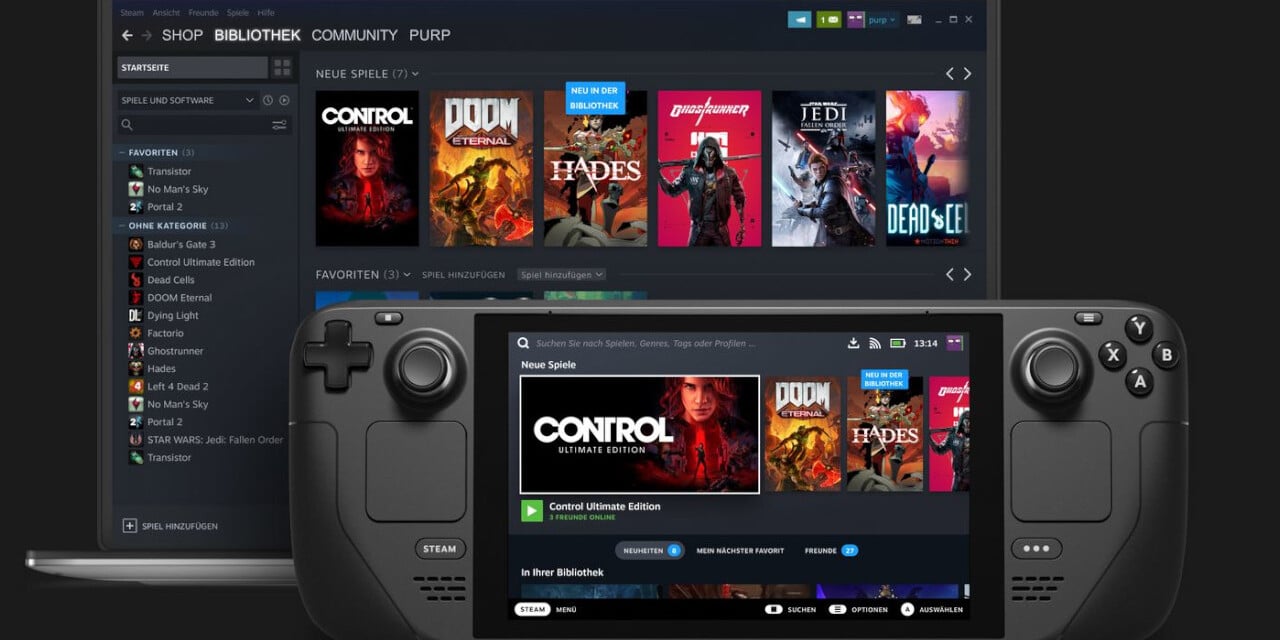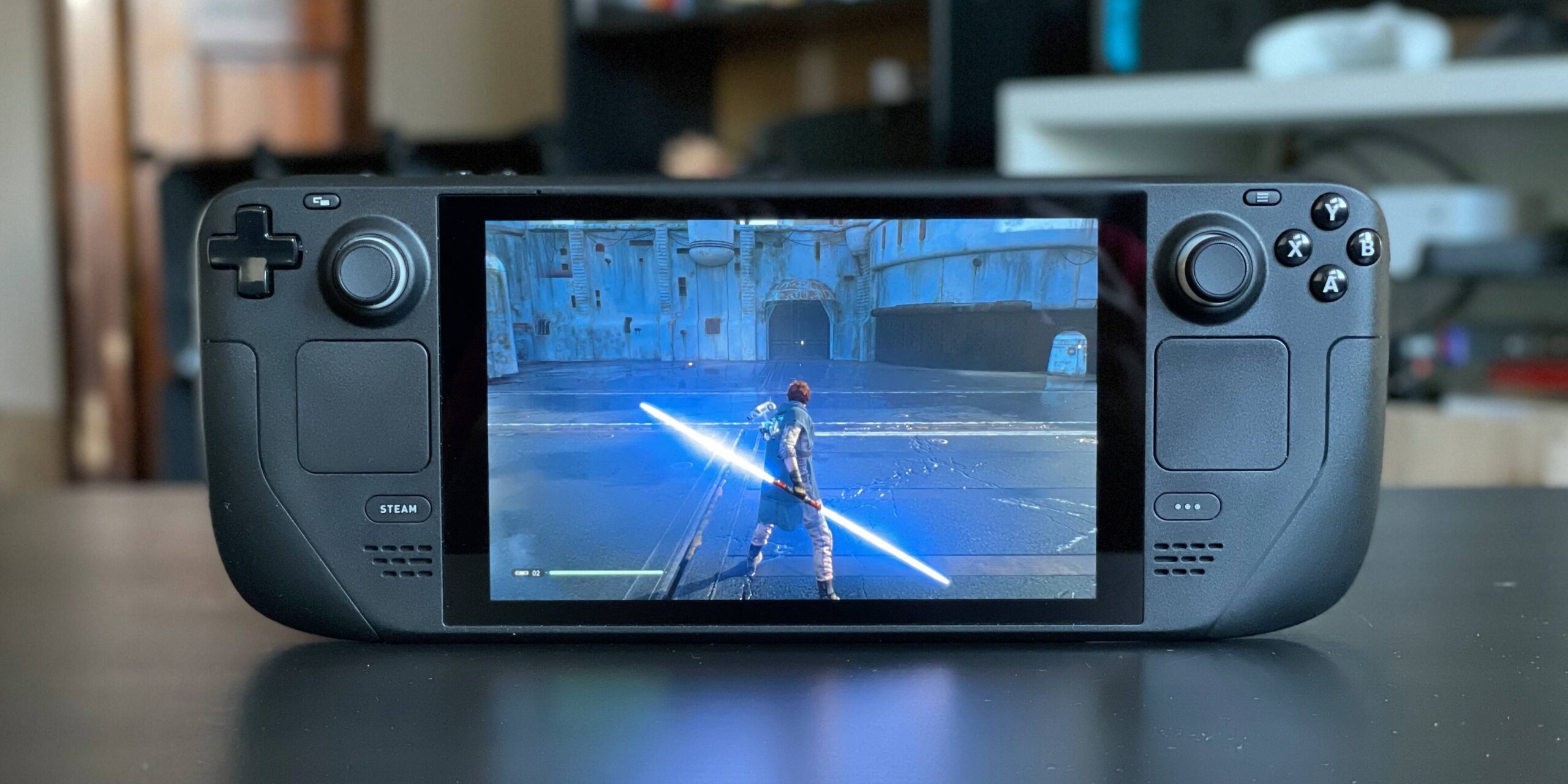Just a few years back, choosing the best operating system for gaming was as simple as simple gets: you chose Windows, and that was it. Though joking about the ever-burgeoning "Year of the Linux Desktop" still rings true to a point, times are a-changing at last, and what was once a non-choice is hardly as universal as it once was.
Do bear with us for a bit here: some of the things we'll discuss in the next couple of sections haven't fully materialized just yet. It takes a tiny bit of visionary thinking and hopefulness to imagine a future where Windows OS no longer rules supreme for gamers, but... in 2023, we've got options.
READ MORE: Your Best Options for Gaming Without the Internet
The Best Operating System for Gaming is - Still Windows

Though we're extremely excited about there being more prospective competition in the market, the simple truth remains the same as it's ever been: Windows likely is still the best choice for most gamers on the market right now. The reasoning behind this is simple:
- Total DRM coverage
- Full game support
- Full hardware support
- Effectively the industry default
For decades, Microsoft's Windows OS and its many, many versions have been the de facto golden standard for gaming. All contemporary digital rights management platforms are built with Windows in mind first and foremost, all hardware manufacturers build their gear for it and primarily support Win, too. Over time, this resulted in the platform becoming the go-to solution for those who just want to game on.
It certainly helps, too, that Windows has a dedicated gaming division you may have heard about - Xbox. By leveraging the Windows Store, Xbox itself, and the phenomenal Xbox Game Pass subscription service, it's not hard to see why it's taken so long for any serious competitor to finally drop in.
SteamOS 3 is Coming Any Time Now...

This remarkable competitive edge isn't quite as remarkable anymore, however. It sure isn't the year of the Linux desktop yet, but Valve's SteamOS has proven its worth time and again, less than two years following the release of the Steam Deck.
Now, we've talked about SteamOS 3 on PC before: it's about as close to a truly dedicated gaming-focused operating system as we've ever had before. From innovative gaming features such as TDP limitations and perfect frame-time management tools, SteamOS 3 delivers the sort of seamless gaming experience we didn't expect out of a PC. Let alone one that's been based on Linux! Yet, Valve does have something special here...
With a caveat, of course: game support.
Not only are we still waiting for SteamOS 3 to launch as an installable ISO to begin with, but gamers opting for this operating system also need to contend with relatively limited game support. Many DRM providers, for example, outright refuse to support SteamOS at this time, and it's a big issue for live-service multiplayer titles like Destiny 2.
So, in summary, what you're getting here (after it officially comes out) is as follows:
- Limited DRM support
- Stellar game support and performance
- Gaming-focused features
- Comprehensive Steam platform integration
- Linux-based desktop
Don't Forget About MacOS, Though!

Now, the second big entry here would've been unthinkable mere months ago: Mac. Indeed, the new version of MacOS, Sonoma, features Apple's reinterpretation of the SteamOS Proton translation layer. Known simply as 'Game Mode,' this admittedly inefficient translation layer allows you to play any WindowsOS game on MacOS, much as you would on SteamOS. Isn't that magical?
The part that brings this whole thing down to earth is the performance of MacOS's Game Mode, however. This whole schtick is primarily a development toolkit, allowing devs to optimize their games for Game Mode, specifically. So, while you can leverage it if your Mac supports Sonoma, don't expect great things until the devs pick it up.
As it currently stands, you're getting:
- Game support comparable to SteamOS
- Poor performance
- Relatively seamless usage
The important bit here, however, is that Apple could certainly set up a valid competitor to Microsoft with Mac. It will, however, take time. It's a far less intricate and performant system than is provided with SteamOS, and it's going to take more time before it's fully matured.
Is a Non-Windows Future Finally Coming?

Obviously, if you want to keep things simple, neat, and performant, you should choose WindowsOS for now. It's a mature operating system, though far from perfect, and it will provide you with a simple, stable, and intuitive user interface for anything and everything you wish to do - from productivity tasks all the way to gaming.
It is incredibly important to underline, however, the fact that Windows had been going stagnant for the longest time. Neither MacOS nor SteamOS will become the go-to gaming OSes just yet, but they do challenge Microsoft's total control over the niche. This means not only that some of us may end up gaming on Linux or Mac in due time, but also that Windows itself is bound to become better as time goes on.
Competition is the primary driver of innovation. Now that Microsoft has capable competitors, the company is bound to rethink some of the operating system's bloatedness and feature-servicing. For that, we are very excited. In fact, we fully expect that some of SteamOS's frame limiting features will eventually make their way into Windows, too!
We'll Keep Track of Gaming Operating Systems, so Stick Around

Here at 2Game, we're rather mindful of our recommendations and advice, so we haven't been overly surprised to see that many of our anticipated gaming industry trends for 2023 have turned out to be true! Much of it isn't good news, as such, so we're not too happy about the situation, but it is what is. One thing this whole shindig tells us is that the gaming industry is bound to become even more interesting in the near and far future, and it's going to pay off to keep an ear close to the ground.
To that end, you're going to want to stick around. If you're still stuck with a lower-spec gaming machine, for example, you may want to check out our low-end PC optimization guide. Freshly updated with new tips and tricks taken from SteamOS itself, it could prove a huge boon if you intend to play Starfield day and date, for example.
That's all just the start of it, though. Be sure to read up on what we think about the mobile gaming industry, while you're here, and stay tuned for lots more - all available via the 2Game Community Hub!
CHECK OUT: What do Fallout 4 Mods Tell Us About Starfield?
Just a few years back, choosing the best operating system for gaming was as simple as simple gets: you chose Windows, and that was it. Though joking about the ever-burgeoning “Year of the Linux Desktop” still rings true to a point, times are a-changing at last, and what was once a non-choice is hardly as […]